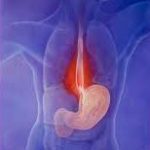[vc_row][vc_column][vc_column_text]
Heartburn caused by food indigestion is quite common now a days. Consider the following statistics:
* According to Surgen General’s Report on Nutrition and Health, digestive problems comprise the number 1 health problem in North America and it was hardly existent just a century ago.
* About 44% of the American population suffer, or have suffered from, heartburn at some point in time of their lives. Of which, 26% are considered “frequent” sufferers. Of this 26% population, over half says they would never be able to live a normal life again due to their heartburn.
* 75% of people taking conventional treatments (over the counter or prescription medicines) for digestive problems continue to experience symptoms – as often as 3 or more times a week. – New England Journal of Medicine
* Approximately 60 to 70 million Americans are affected by different types digestive diseases – National Institute of Diabetes and Digestive and Kidney Diseases
* Digestive problems are the leading cause of hospitalization, surgery, and disability in the U.S. – National Institutes of Health (NIH)
* In a study, out of 15,000 people with heartburn, approximately 25% of them suffer the nighttime heartburn.
* Cancer of the esophagus related to heartburn and Gastroesophageal Reflux Disease (GERD) is the most rapidly increasing cancer in western countries – University of Connecticut Health Center
Why do I related these heartburn (also known as acid indigestion) statistics to digestive juice and enzymes? Because our digestion process is strongly tied to the quality of the digestive juice and the enzymes our stomach uses to properly breakdown the foods.
There is a myth out there that we have acid reflux or heartburn related symptoms because we have too much stomach acid. That’s why we are given the over the counter antacids or its fancier prescription cousins to treat these symptoms. Nothing could be further from the truth. First of all, our stomach is designed to use strong acid (typically between 1.5 to 3.5 on the pH scale) to breakdown the foods and kill any unwanted microbes (such as bacteria, virus or God forbid parasites) and protect us from illnesses they can cause. Moreover, data shows that our stomach acid (HCl) production degrades (towards the high end of the pH scale – meaning less acidic) as we age and not more acidic (towards the lower end of the pH scale). The same is true with our enzymes production.
Since it is the purpose of the stomach acid to breakdown the foods into a chyme, without a proper level of acid in the stomach, our foods are never broken down completely. Improperly broken down foods will leave acidic residues. Incomplete digestion of proteins can produce nitric acid, sulphuric acid or phosphoric acids. Incomplete carbohydrate digestions can lead to lactic acids and keto acids residues are the result of incomplete digestion of fats. These by-products acids from indigestion tend to be more gaseous and thus create pressure in the stomach upwards as well downward. Bloating feeling is typically a result of this indigestion process. So, the root cause of heartburn is more likely caused by the insufficient acidity in the stomach juice than too much of it, in the first place. By taking antacids, one is only trying to remove the symptom without addressing the cause. In fact, it is further aggravating the natural digestive process by diluting the stomach acid and thereby its ability to breakdown foods particles.
If you are around the age of 40, give and take a few years, our stomach acid juice (HCl) production is reduced and as a result we feel more sluggish after eating a heavy meal. This is primarily due to a lack of HCl which impairs the protein breakdown (hardest to breakdown among other food groups) and thus leading to potential protein mal-nourishment. Combined with the excess acids from the by-product of the indigestion described in previous paragraph, our blood becomes toxic, causing the weakening of our muscles and mineral deficiency.
Some of the short term and long term symptoms of lack of stomach acid juice are: bloating, flatulence, heartburn, diarrhea, constipation, acne, chronic candida, food allergies, immune problems, just to name few.
Protein Digestive Aid – PDA, provides a higher level of HCl for people who might be deficient in stomach acid. It is also good for anyone who has difficulty building muscle. It increases the stomach acid to encourage quicker digestion.
Digestive Enzymes – helps to completely digest your foods after they have been broken down by the stomach acids. Enzymes enables complete absorption of the nutrients in the small intestines. All natural foods (non-processed, non-irradiated, and non-heated), contain plenty of enzymes in themselves to assist us in the digestion process. However, majority of our foods today are de-natured, processed, boxed, and refined, void of any natural enzymes. Human body is not designed to digesting those types of foods easily. The compounding factor that our digestive enzymes production are reduced through the aging process, it is no wonder why so many of us have the digestion issues.
To digest proteins, there are enzymes called proteases; for fats we have lipases and carbohydrates we have amylases. Each of these types of enzymes have their own purpose and specific action. For example, proteases will digest protein and break them down into peptides and peptidase role is to turn peptides into amino acids. This entire process is called Proteolysis. That is, a process by which protein particles are broken down by hydrolysis of its peptide bonds and link them into the formation of amino acids. One cannot under-estimate their importance to our digestive system to our overall health.
Enzymes play a key role in detoxification as well. Enzymes turn fat soluble toxins into water soluble toxins for easy elimination. Lack of enzymes in our system, not only means a compromised digestion but also improper elimination and detoxification. Enzymes are also very important in reducing our body’s inflammation.
Food Enzymes – Is a product we take almost every meal to aid digestion to a meal that is predominantly cooked. It contains pancreatin, amylase, papain, bromelain, lipase, bile salts (fat digestion), and even Betaine HCl (natural stomach acid for protein digestion) with pepsin. One capsule of Food Enzymes will digest 30 grams of protein, 30 grams of carbohydrates, and 20 grams of fat. An excellent all-around digestive enzyme formula.
Vegetarian Digestive Aids – Yes, vegetarians have a need for digestive enzymes as well. The only difference is that the protein source is not from animals, instead it is now from grains, legumes, etc… A gentle vegetarian source of enzymes for all types of foods are contained in this product called Proactazymes. It contains all herbal base of stomach soothing enzymes such as amylase, glucoamylase, lipase, cellulase, hemicellulase, invertase, peptidase, and protease. It is a great product for people with sensitive digestive stomach even if they are not vegetarians.
Hiatus – One of the causes of heartburn is from the hiatus hernia. In simple terms, it is a protrusion of the upper part of the stomach into the esophagus region through the diaphragm. See picture below for better illustration. The bulge shown here, however small, causes an opening above the diaphragm which may store food residues and its stomach acids. Some people get this protrusion from the excess acid gas created by the undigested food particles and yet others get it from an unfortunate exercise movement (especially worst right after a meal). Typical symptoms are pain in that region, breathing difficulty, and of course acid reflux. It may sometimes be misdiagnosed as ulcer or even an heart attack. Of course, the best way not getting it in the first place is to eat the healthy food which contains enzymes of their own to aid in their digestion in our body. But when that is not available, then always use Food Enzymes to assist your stomach in the break down of the cooked foods so that it will not cause the excess residue acids. Avoid exercising when your stomach is full of food or drinks, always. These are some of the things you can easily do to avoid ever getting a hiatus hernia. However, once you have it (and you will know if you have one or not), of course always consult with your physician to find out what they can do to help you. There is an alternative approach to manually massage the region by gently pulling the hernia portion back down to below the diaphragm. It is called the hiatus maneuver. Only ND’s and/or trained massage therapist in this special maneuver will adequately be able to help. Expect multiple sessions to complete the process.
We will be discussing about intestinal health in our next blog. We will go into the reasons why our intestines are sometimes called our second brain and how you can make it “smarter.” Don’t miss it![/vc_column_text][/vc_column][/vc_row]

